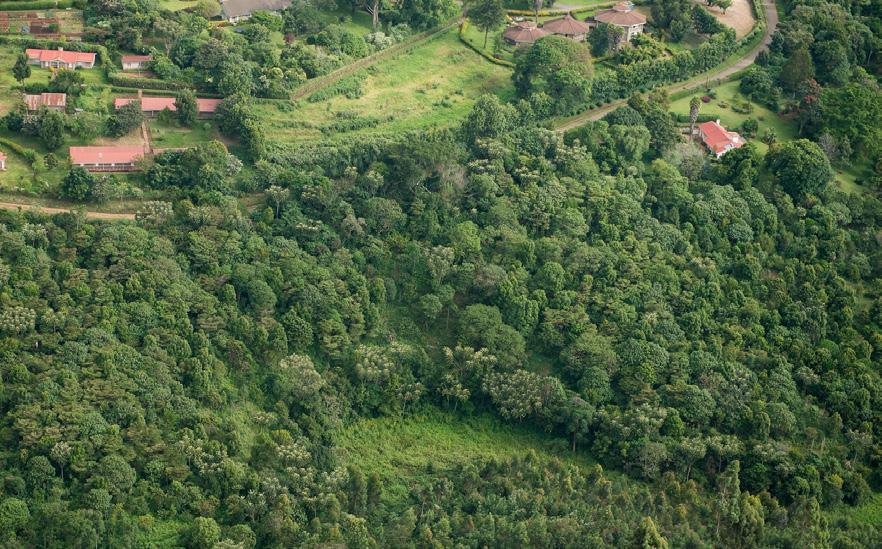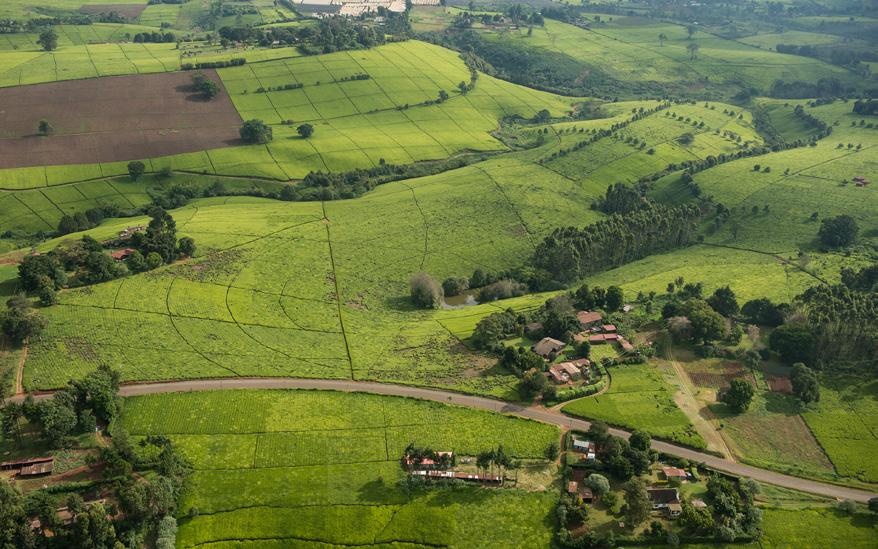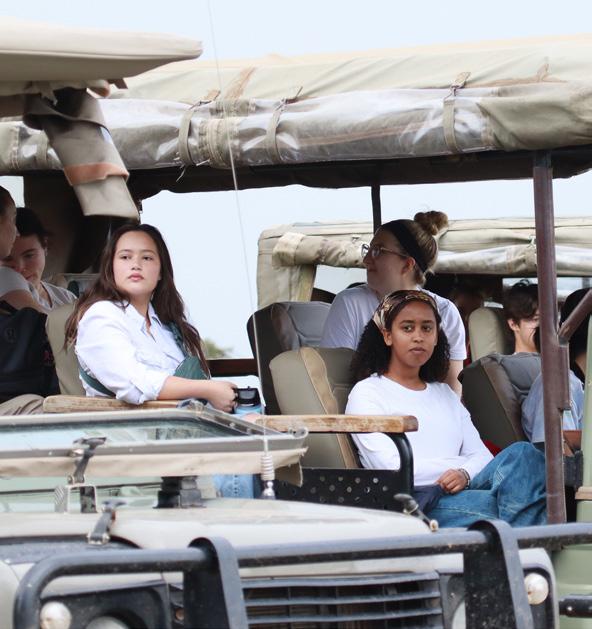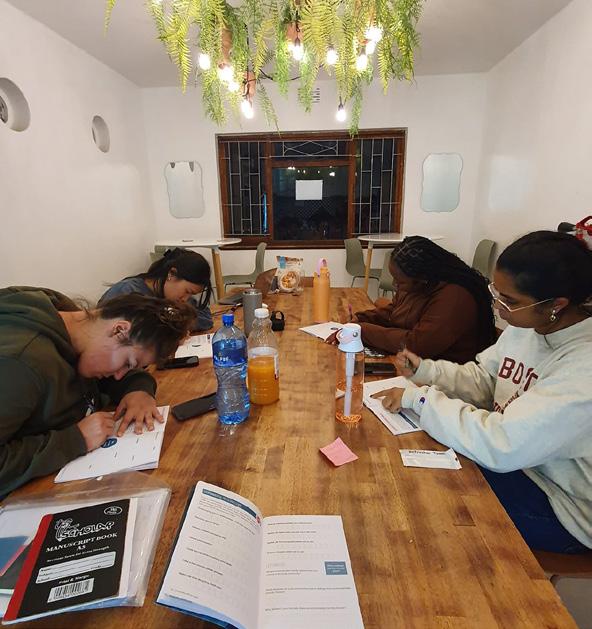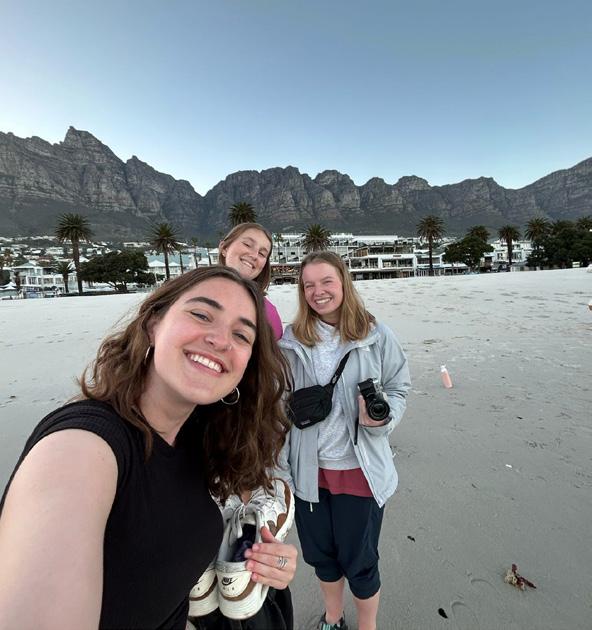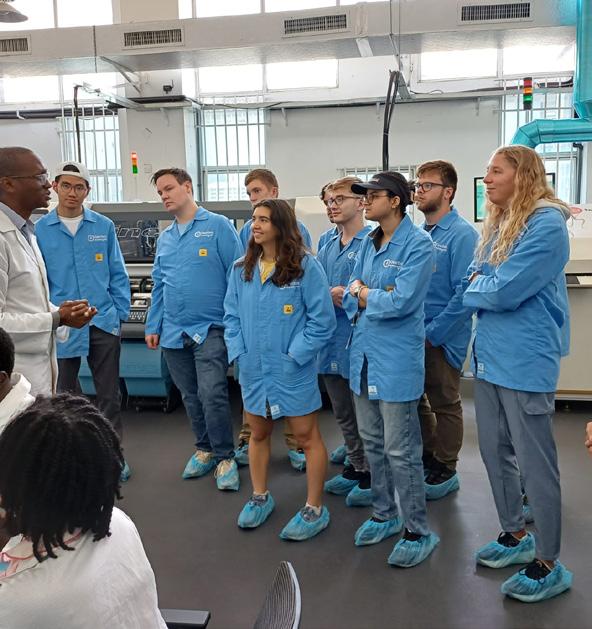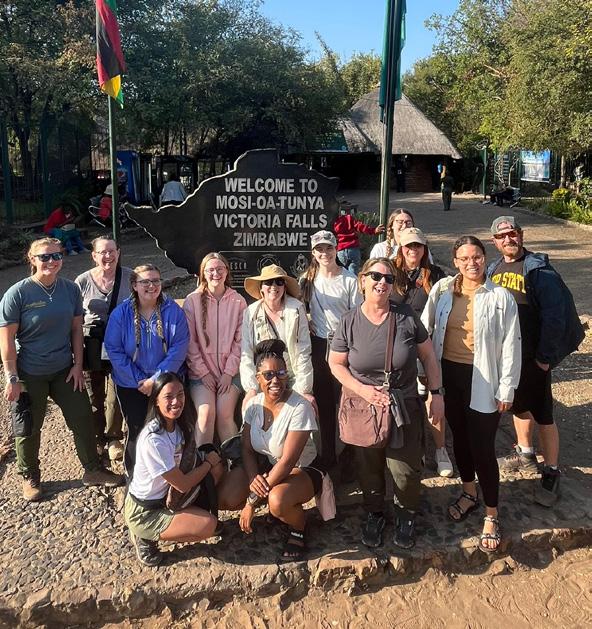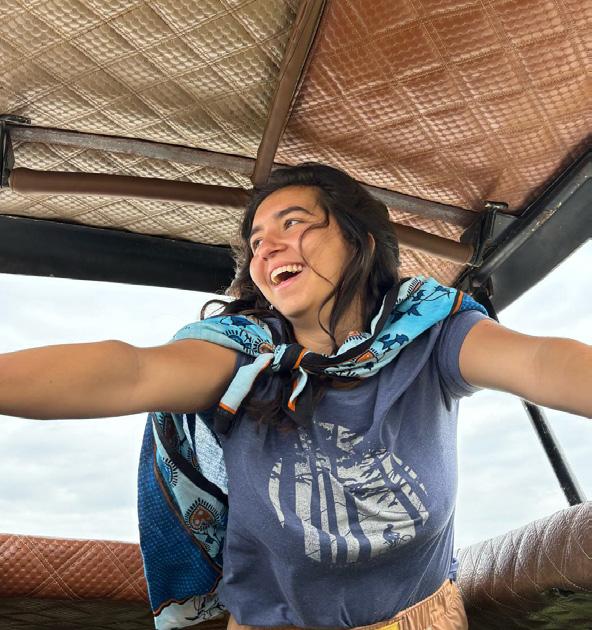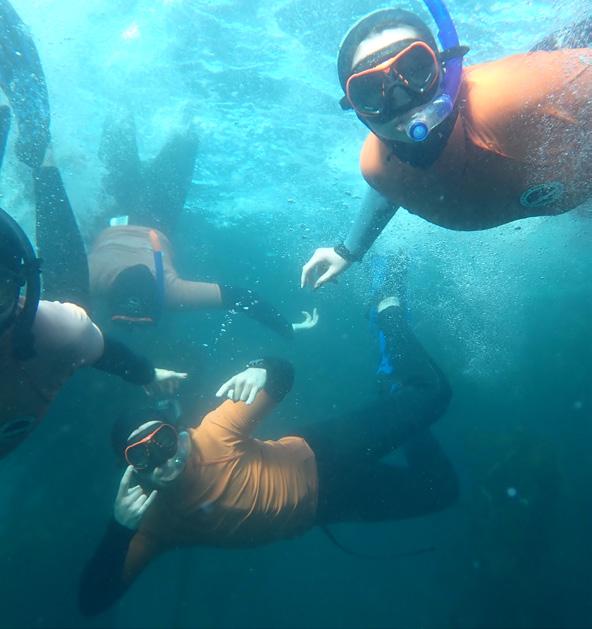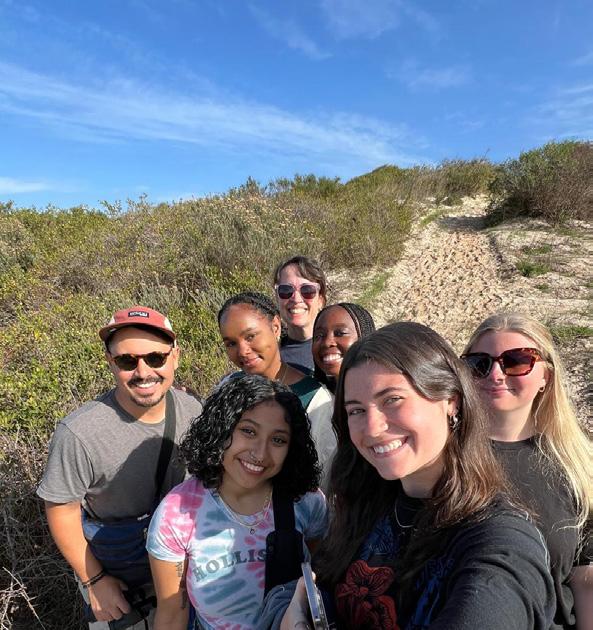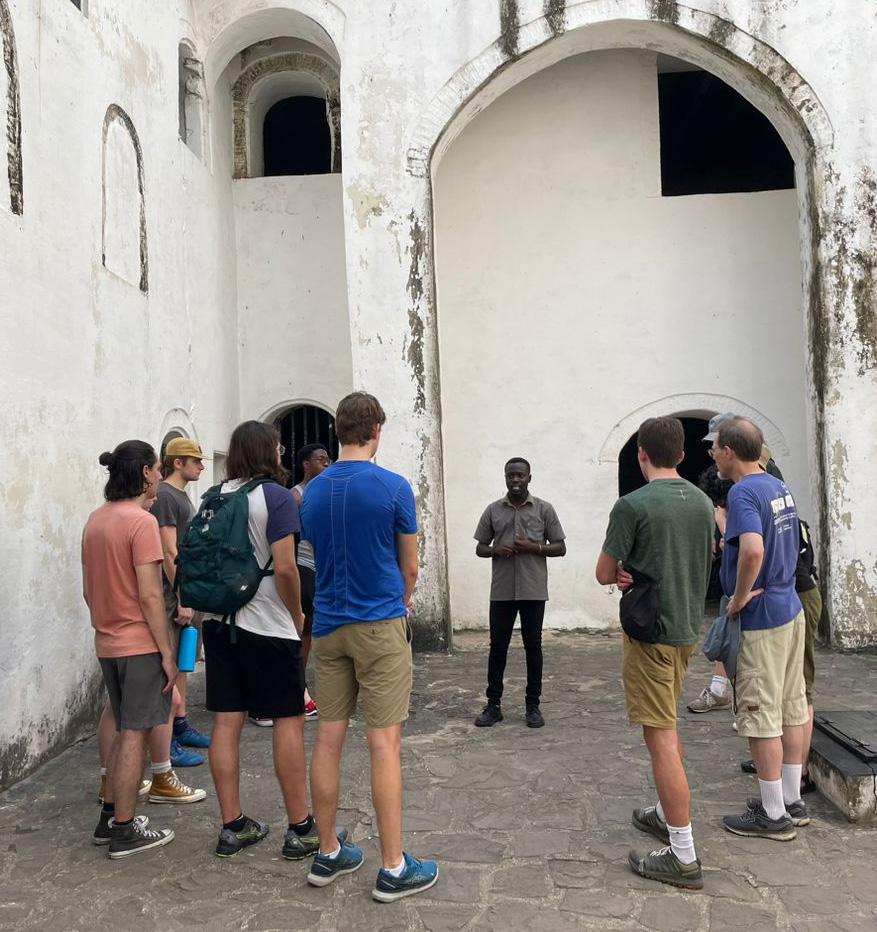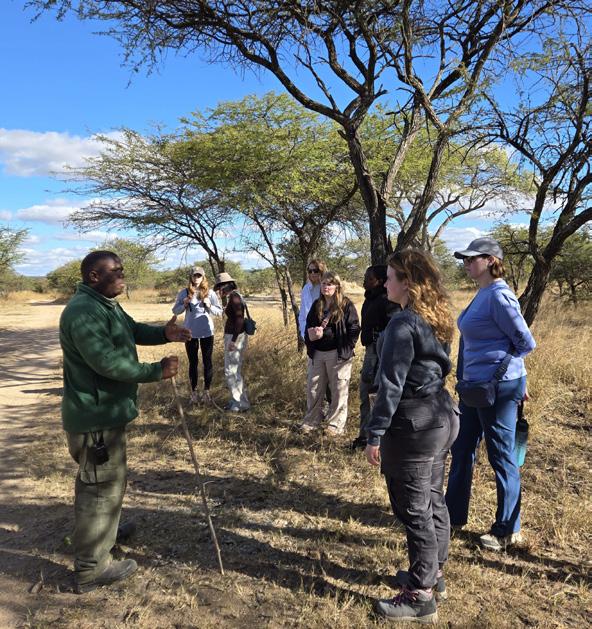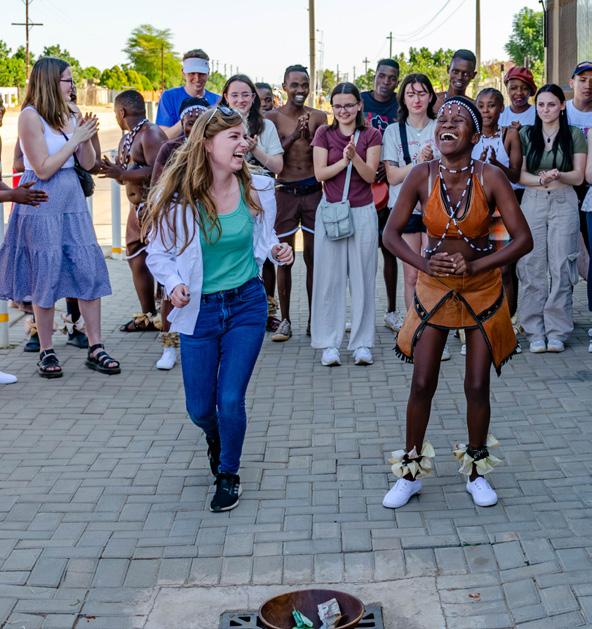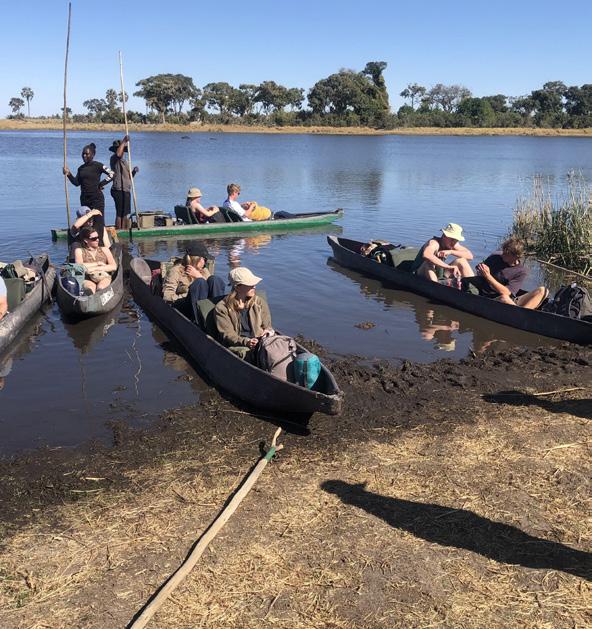










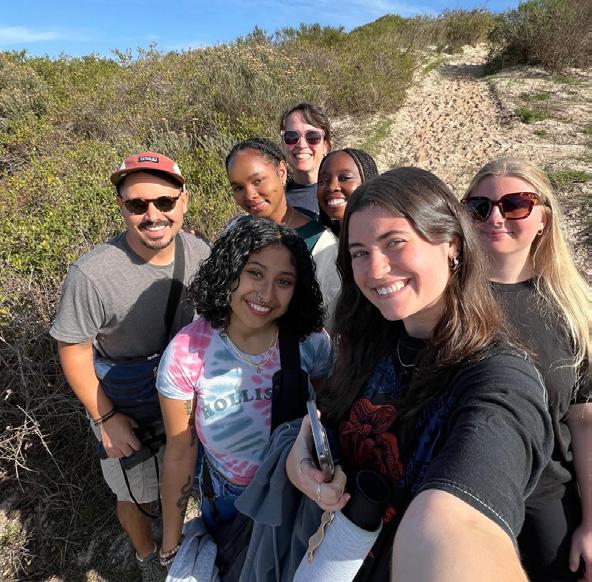
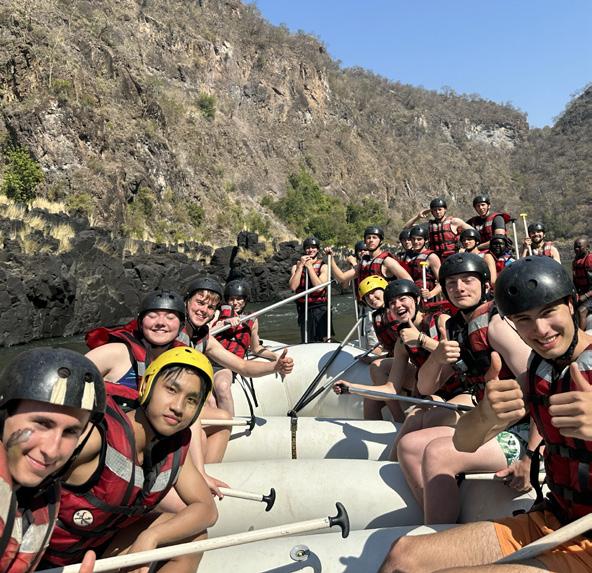
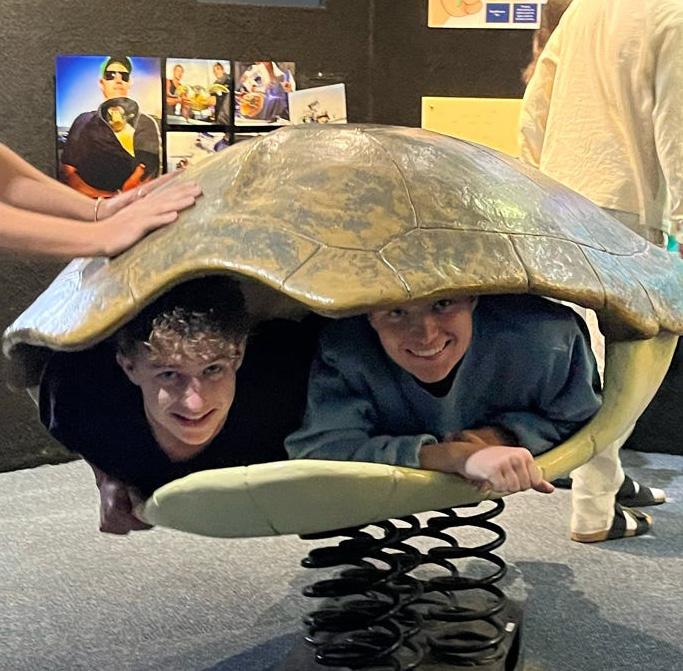
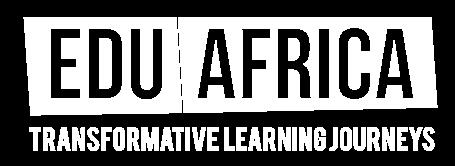
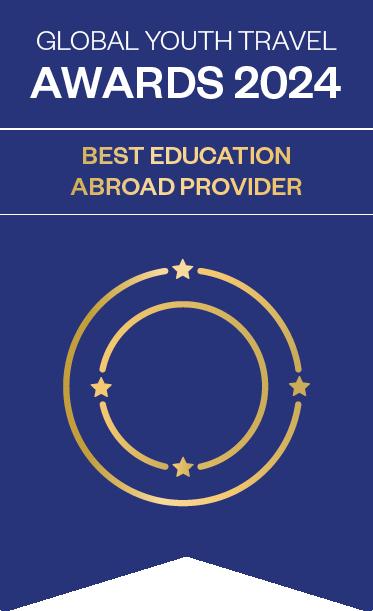
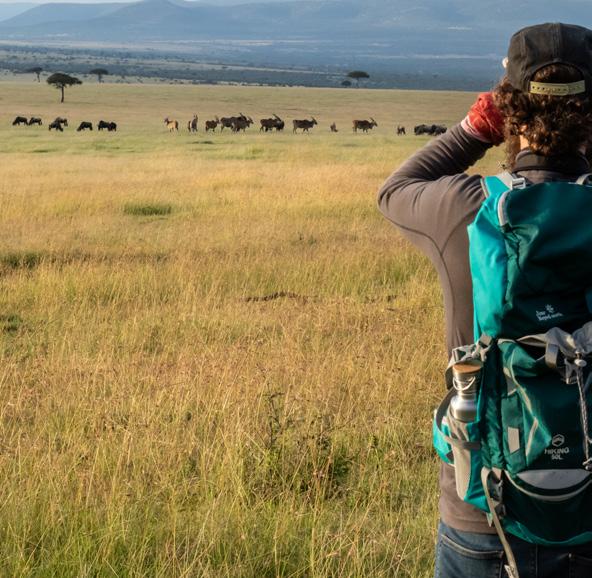
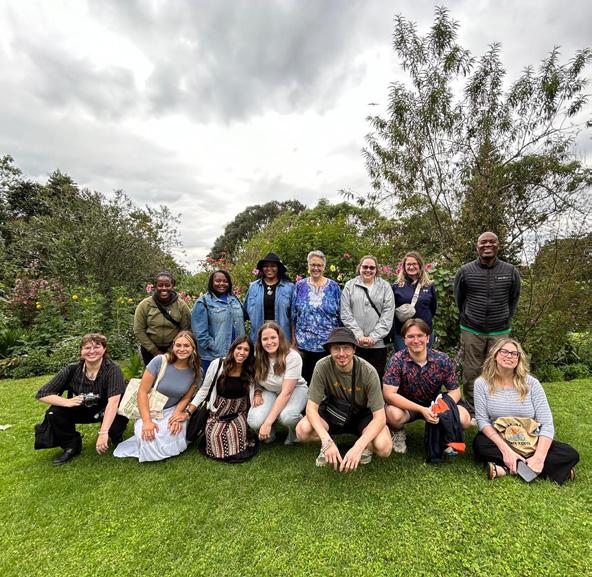
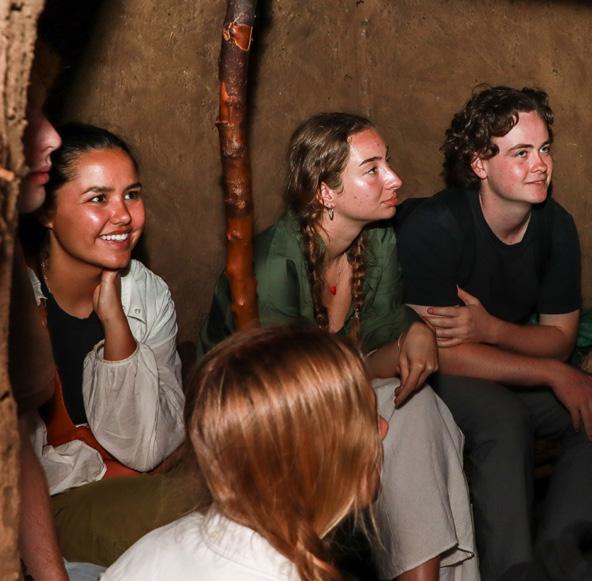
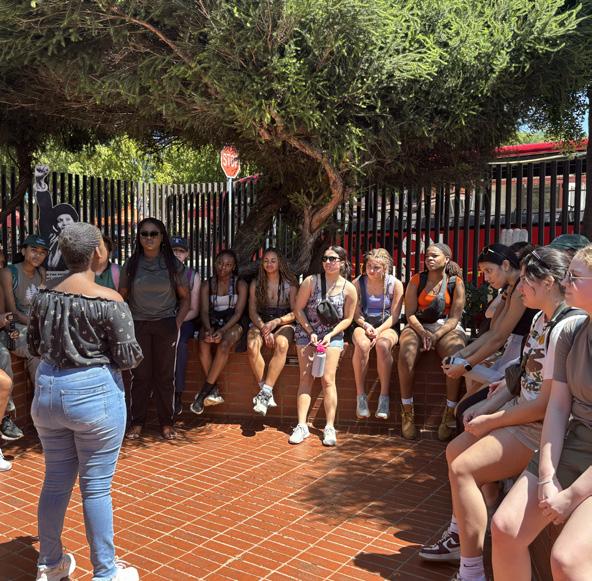
CUSTOMIZED faculty-led programs
NAMIBIA zambia benin locations
togo ghana
uganda
KENYA RWANDA tanzania BOTSWANA
mozambique malawi zimbabwe
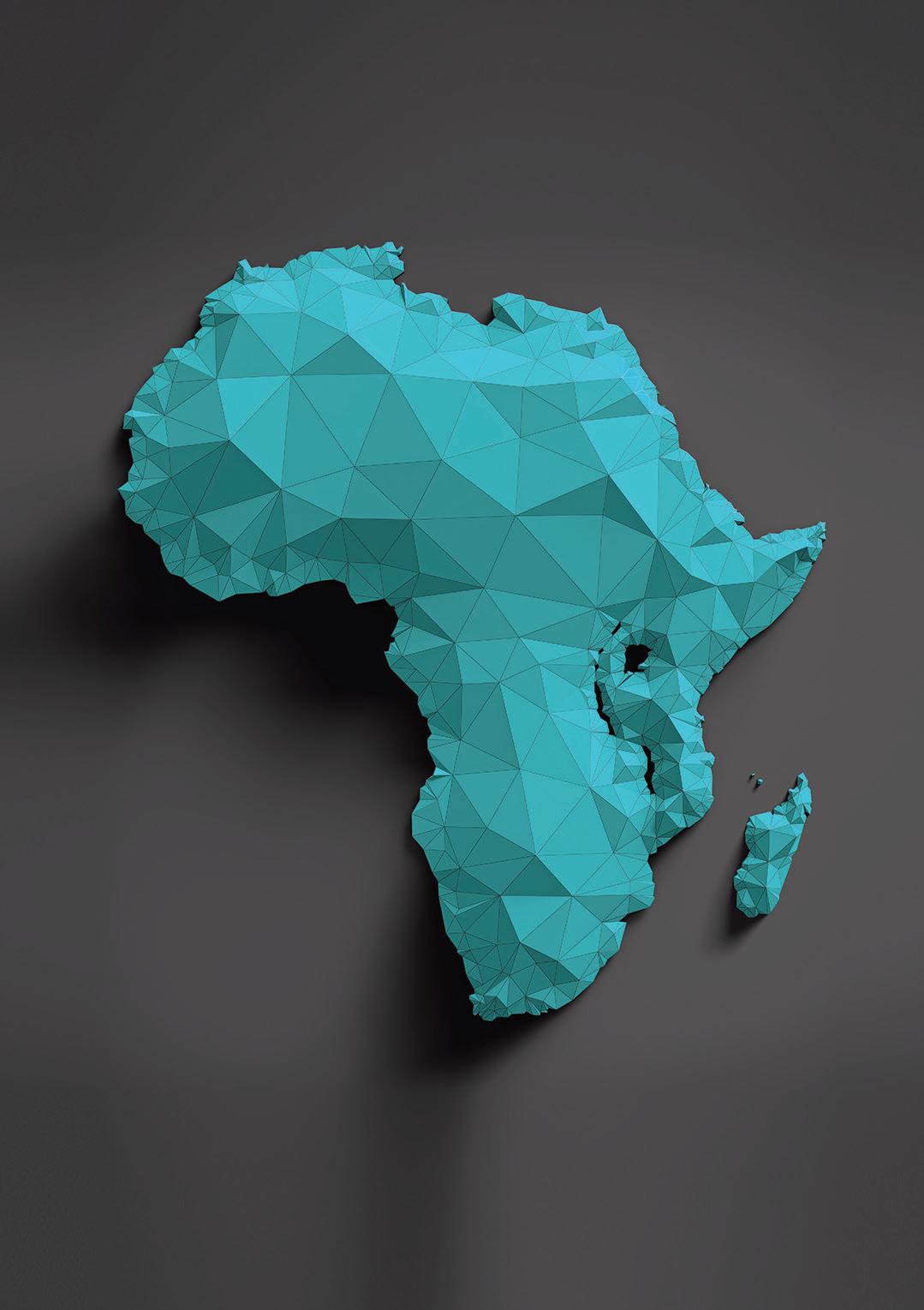
SOUTH AFRICA
Our goal is for all students to experience holistic transformation during their time in Africa and to become global agents of change.
To this end, we offer students access to experiential learning opportunities, high-caliber industry and academic professionals, and impactful community initiatives. We strive to provoke students’ understanding of various African cultures, knowledge systems, and worldviews. This is achieved by combining place-based experiences and content with intentional reflection practices and dialogue, fostering authentic engagements and meaningful relationships. Moreover, we seek to challenge students to critically examine these aspects within their own global contexts.
That is why our mission is to develop and facilitate Transformative Learning Journeys through our Faculty-Led, Online Global Learning, Middle and High School, Group Internship, and Professional Development programs in Sub-Saharan Africa. Our experienced Program Designers will work closely with you to customize your program and ensure it meets your specific learning outcomes.
Transformation in our Faculty-Led programs refers to an augmentation of perspective(s) that can result from venturing outside of one’s comfort zone—whether in-country or virtually.
We view transformation as a holistic process, achieved through meaningful progress across our five goal areas:





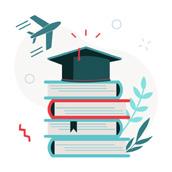
We aspire for students to experience holistic transformation through our programs in Africa. To encourage this, we develop programs that provide participants with access to experiential learning scenarios, high-caliber industry and academic professionals, and sustainable community initiatives.

We are committed to using our programs as a platform to amplify and respect the amazing voices, stories, and ideas that are found on the African continent.
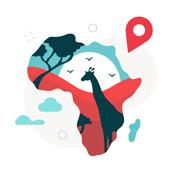
We work from four regional offices in Ghana, Kenya, South Africa, and Zimbabwe. We are on the ground where it all happens. This gives us the local expertise to confidently welcome you to Sub-Saharan Africa with confidence. We also deeply understand and care about the local communities we work with, fostering meaningful, long-term relationships.
Friendly and skilled programming teams

We believe that communication is key, and our Program Designers will guide you through every step of the planning process to compile a unique and customized educational program that meets your expectations. Our professional, qualified Program Facilitators will lead the group with excellence, providing 24-hour on-location support.

With over 20 years of experience, we have developed a safety and security framework to protect our valued participants. We conduct regular, in-depth risk assessments in all our locations to ensure Group Leaders are well-informed and up to date. Our Child Protection Policy aligns with the UN Standards for Child Protection, ensuring the highest level of care for all involved.
In 2024, EDU Africa ran over 70 Faculty-Led education programs across Sub-Saharan Africa, with 46 participating in our Transformation Assessment. This optimally positions us to investigate the transformative factors influencing study abroad experiences and student evolution in our regions of operation. Over the past year, 362 students completed pre- and post-program transformation questionnaires.
Since 2021, we have been collecting data on student transformation using pre- and postprogram questionnaires, informed by learning theory and adapted to assess our educational approach. In 2024, we refined our research focus to address the following key questions:
1. Is transformation—a holistic change we define across five transformation areas— actually occurring?
2. If so, what is the nature thereof?
3. How do transformations differ according to program modalities (online, in-country, and/ or hybrid programs)?*
To adequately answer these questions, we introduced several methodological adjustments to our reporting in 2024, including reconsidering the weighting of transformation scores, using the cumulation of individual responses as opposed to group weightings, and undertaking comprehensive qualitative analyses on all programs.
Our Program Designers are now working more closely with their program’s transformation data, personally analyzing the changes and shifts that emerge to help us better understand the student learning experience, design more meaningful programs, and take responsibility for learning gains—as well gaps or challenges—that may occur.
The year-on-year data from our transformation questionnaires shows that, despite the impacts of COVID-19 and shifts in international education, our transformation scores have remained relatively the same across our programs:
However, the qualitative themes from our 2024 dataset differ from those of the previous year, requiring further analysis. We use open coding to allow all aspects of transformation to emerge, making our findings both insightful and complex. This data is compiled and analyzed in our annual Transformation Report.
We are piloting research on specific student cohorts, such as Africa-based and Community College students, to track their transformation through our programs. Detailed findings are published in additional research outputs.
For collaboration on transformation research, please contact Dr. Heidi Barends at heidi@edu-africa.com.
Want to customize a Middle or High School Program? We thrive on innovation and collaboration with our partners and global clients. Our friendly and experienced Program Designers will assist you in developing your unique Transformative Learning Journey in Africa every step of the way.
We would love to set up a call to meet you, discuss your requirements, and tell you more about our approach to Transformative Learning.
Share your ideas, learning objectives, and logistical needs.
After receiving your customized proposal within two to three weeks, we can collaborate and tweak every detail until it meets your exact requirements.
Once you are 100% happy with your program, we will require a minimum of a 25% deposit to secure your booking. This is refundable up to 75 days before your program starts (less booking cancellation/administration fees).
If required, we can support your efforts by providing you with promotional material and presentations or arranging a virtual questionand-answer session to help with student recruitment.
Your dedicated Program Designer will arrange a call to talk through:
● Your program itinerary to clarify details and expectations, and answer any questions
● Health and safety policies and procedures
● Program resources – orientation details, reflection practices, student questionnaires, and reintegration support
Finalize participant numbers, logistical information, and settle outstanding payments.
8.
We can arrange a virtual information session to better prepare students for their in-country journey to Sub-Saharan Africa. We’ll share our Student Handbook, which includes vital preprogram information. Students need to complete our Participant Information form and sign our Participant Agreement.
You’ll receive the final program itinerary and necessary arrival/sign-up information.
You will be welcomed and supported by your dedicated Program Facilitator for the duration of your program.
We will share the student transformation results with you and discuss program feedback. Students can also sign up and receive our reintegration support content.
Benin, a predominantly French-speaking West African country, was once home to the Dahomey Kingdom in the 15th century. Colonized by the French in 1872, it gained independence in 1960. In 1991, Benin transitioned from a dictatorship to a democracy, setting a historic precedent.
The country is known for its political stability and is considered the birthplace of Vodun, with temples and rituals present throughout. Benin has a rich history shaped by slavery and colonialism, reflected in its unique landscape and Afro-Brazilian architecture. Preservation of historical buildings has gained momentum, initially driven by citizens and later supported by the government.
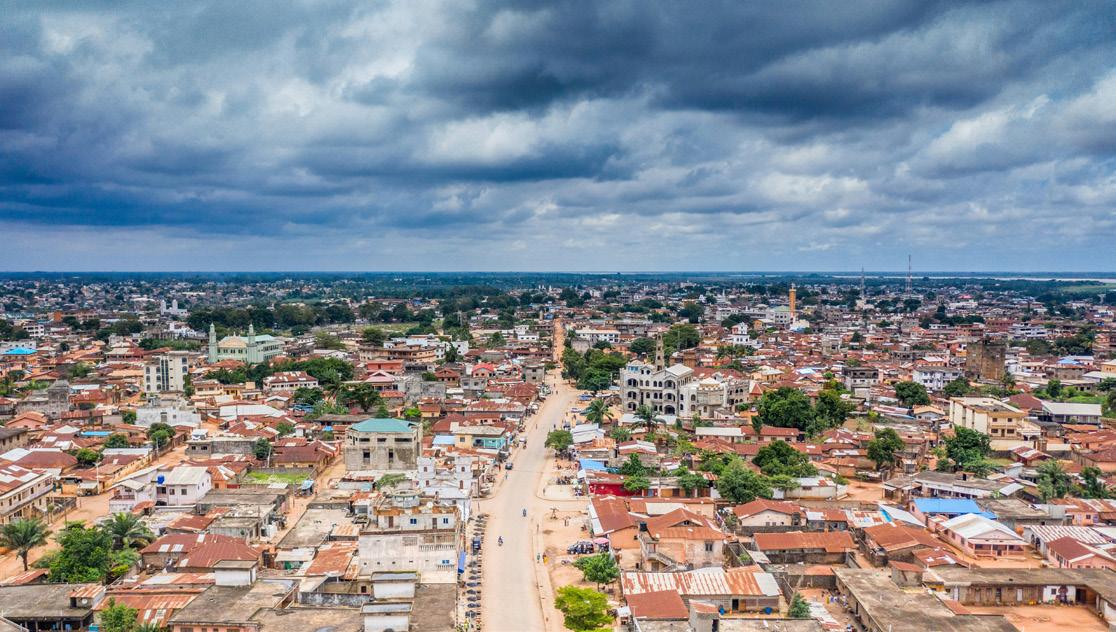
This program encourages participants to examine Benin’s multifaceted cultural, historical, and spiritual heritage. By visiting various sites of cultural and historical significance, students will learn about the nuances of life in Benin. They will explore the historical and socioeconomic factors that have influenced the region’s voodoo traditions.
Participants will also have the opportunity to engage with local practitioners gaining insights into the cultural significance and preservation of this ancient spiritual practice. Through community engagement, students will develop a deeper understanding of Benin from a local perspective.
This program offers students the opportunity to engage with Benin’s diverse musical traditions, ranging from traditional folk music to contemporary genres. By participating in interactive workshops, performances, and discussions with local musicians and artists, students will gain insight into the historical roots and cultural significance of Beninese music and performing arts. Additionally, they will explore the role of music in community life, its connections to spirituality and storytelling, and its expression of social and political themes.
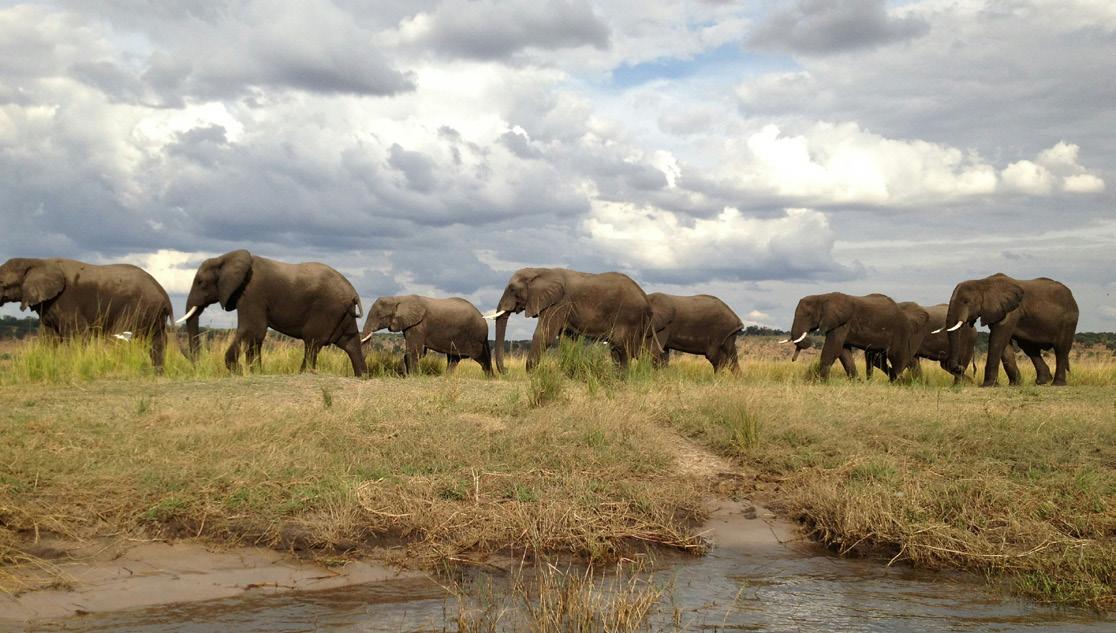
Participants are encouraged to explore the economic landscape of Botswana, with a specific focus on its diamond sector, an important factor in the country’s economy. Through a combination of informative lectures, industry visits, and discussions with local experts, participants will learn about Botswana’s unique partnership with De Beers diamond consortium.
Additionally, they will also learn about the government’s efforts to maximize the benefits of diamond revenues for sustainable development, including investments in education, healthcare, and infrastructure. Moreover, students will assess the socioeconomic impact of the diamond industry on local communities and explore innovative approaches to responsible business practices and corporate social responsibility.
This program aims to provide an in-depth understanding of Botswana’s history, culture, and political landscape. Participants will have the opportunity to learn about the country’s fascinating past, from the ancient civilizations that once thrived in the region to its colonial history and journey toward independence. The program includes interactive discussions, historical site visits, and engagement with local communities, offering valuable insight into the diverse cultural traditions, languages, and customs that shape Botswana’s identity. Additionally, participants will examine the country’s democratic governance, political institutions, and development strategies. This will provide them with a deeper understanding of Botswana’s unique position as a stable democracy in Africa.
Botswana is widely recognized for its political and economic stability. It is also wellknown for its ecological, cultural, and social diversity. Botswana is home to the world’s largest elephant population and features a diverse landscape including savannas, deserts, and wetlands.
The Kalahari Desert and the Okavango Delta (a UNESCO World Heritage Site) define the country’s geography. Botswana’s economy is driven by diamond mining, tourism, and agriculture. Despite challenges, Botswana has made significant strides in development and boasts a high standard of living compared to other African nations.
Ghana is named after the Ghana Empire, founded by the Akan Ethnic group in the 13th century. The empire was known for its wealth in gold and had extensive trade with the Portuguese, Dutch, and English. In 1957, Ghana gained independence from British colonial rule, led by Kwame Nkrumah. The country has about 50 indigenous languages, with Akan, Ewe, Ga, Dagaare, and Dagbani being the main languages, and English as the official language.
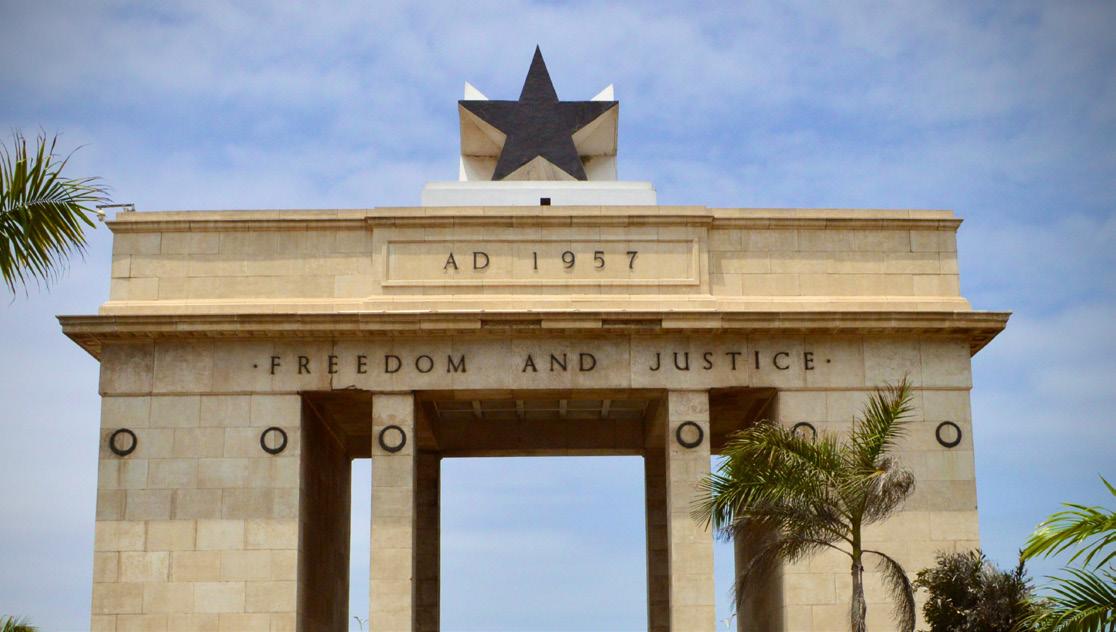
This program is dedicated to immersing students in the history and culture of Ghana. By visiting both rural and urban areas of the country and engaging with local communities, students will gain insights into the nation’s rich artistic, musical, and culinary traditions. They will be encouraged to experience Ghanaian life and interact with its people in authentic and unstructured ways. In doing so, students will be able to reflect on the global impact of Ghana’s history.
Participants will engage with Ghana’s diverse cultural tapestry, including the country’s traditional festivals, music, dance, art, and cuisine. Through interactive workshops, visits to historic sites, and engaging interactions with local communities, students will learn about the customs, beliefs, and traditions that shape Ghanaian identity. They will explore the country’s intriguing history, from ancient kingdoms and colonial legacies to its pivotal role in the Pan-African movement and struggle for independence. By participating in intercultural activities and service learning projects, participants will foster meaningful connections with Ghanaians, celebrate cultural diversity, and gain an understanding of the importance of heritage preservation in shaping societies and promoting mutual understanding. social science social science
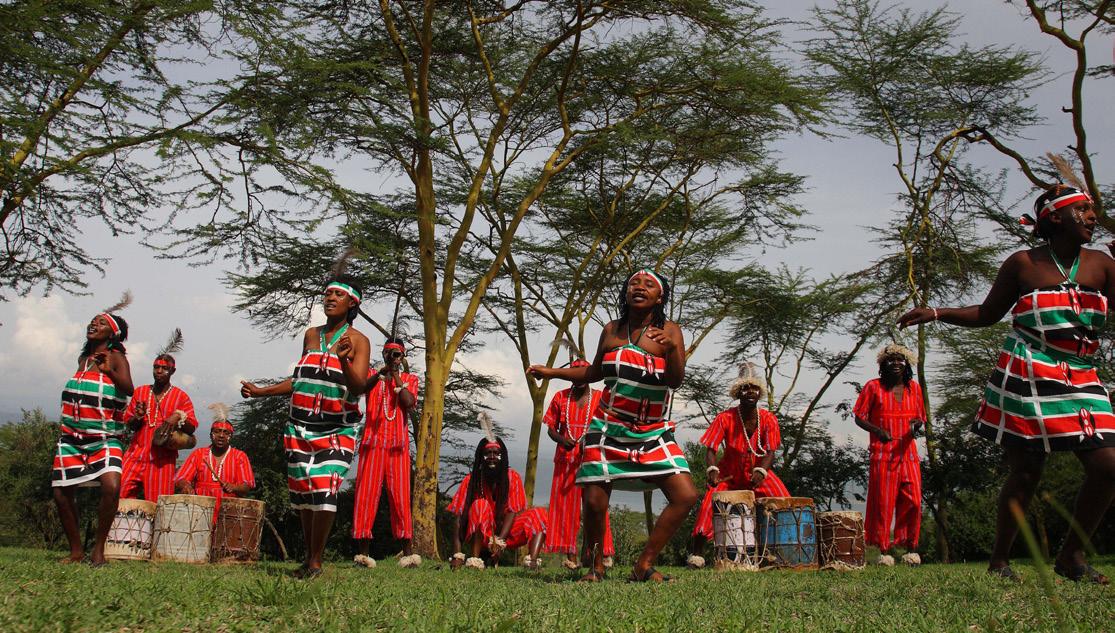
This program will introduce students to human health, evolution, ecology, and conservation in Kenya. Students will visit museums and prehistoric sites to observe the archeological remains of various hominids. They will explore the sustainable ecological conservation methods used in Kenya through various local community initiatives and gain a comprehensive understanding of the complexities of ecological spaces, including indigenous forests, the Great Rift Valley, and the Maasai Mara. Participants will engage with local agents who are committed to the protection, preservation, and promotion of the aforementioned spaces. Moreover, students will participate in culturally immersive activities designed to familiarize them to the country setting and increase their cross-cultural competence.
This immersive program is designed to allow participants to explore the social entrepreneurship landscape in Kenya. Interactions with local organizations and leaders will be integrated throughout the program to promote relationship building, transnational networking through cultural exchange, and active two-way learning. Students will also explore various cultural sites and enjoy some of the country’s natural spaces. In doing so, they will increase their intercultural competence, grow as global citizens, develop intellectually and professionally, and experience personal growth as a result of the international experience.
Kenya, located in East Africa, is renowned for its beautiful landscapes and extensive wildlife reserves. Kenya’s rich human history dates back numerous years, encompassing the Nilotic and Bantu migrations, and the arrival of Arab traders on the coast in the first century AD. Kiswahili, one of the country’s official languages, has Bantu and Arabic roots; English, the second official language, is a vestige of its colonial past. Kenya has a rapidly growing economy, relying heavily on tourism for revenue, and is renowned for its safari experiences and the great Wildebeest migration shared with Tanzania.
Malawi, known as the “Warm Heart of Africa,” is home to Lake Malawi, a UNESCO World Heritage Site and one of Africa’s largest freshwater lakes. The country boasts beautiful landscapes with diverse flora and fauna.
Like many countries, Malawi faces challenges such as poverty and healthcare disparities, but it is a resilient nation committed to sustainable development and wildlife conservation. Malawi’s rich cultural heritage is showcased through unique traditional music, dances, and festivals, making it a versatile place to learn about numerous disciplines.
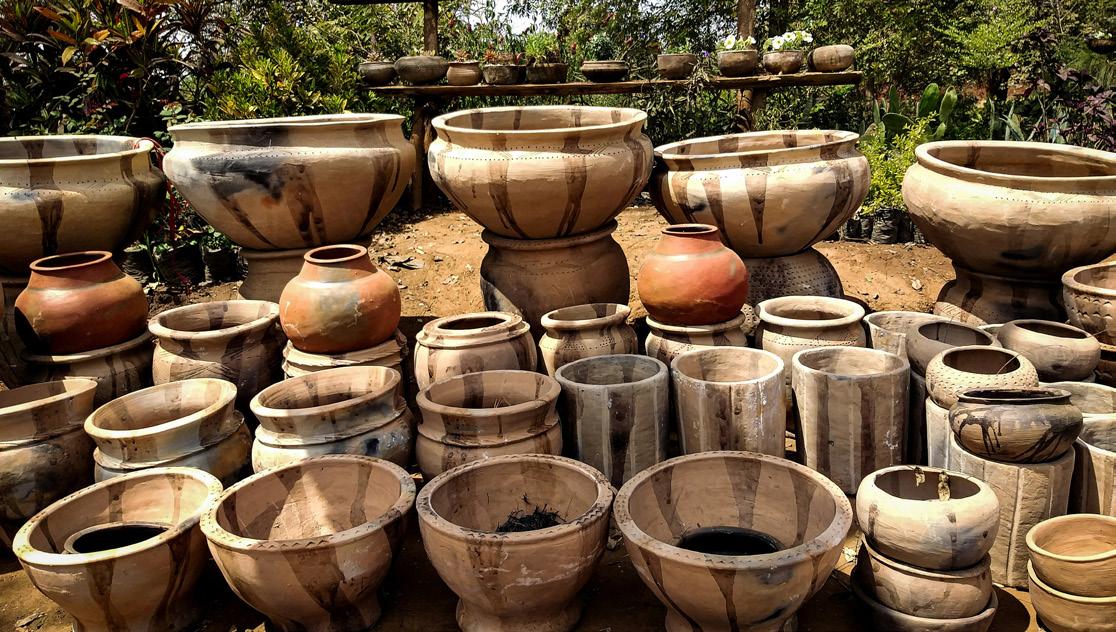
This program will encourage participants to engage with Malawi’s history of peaceful transitions of power and democratic governance. Through interactive seminars, meetings with local officials, and visits to community-based organizations, students will gain insights into the mechanisms and institutions that promote peace, stability, and good governance in Malawi. They will examine the role of civil society, grassroots movements, and international partnerships in fostering social cohesion, promoting human rights, and addressing the socio-economic issues of poverty, inequality, and corruption. With a deeper understanding of peacebuilding and governance principles developed throughout the program, participants will be encouraged to consider ways to positively contribute to global efforts that promote peace, justice, and sustainable development.
This program introduces participants to the complexities of gender dynamics and women’s experiences in Malawian society. Students will explore issues of gender equality, women’s empowerment, and the intersections of gender with culture, tradition, and development. Through interactive discussions, field research, and engagements with local activists and community leaders, participants will learn about the challenges and opportunities for advancing gender equality in Malawi. They will learn from the perspectives and initiatives of Malawian women, while examining the cultural norms and social structures that influence gender roles and relationships.
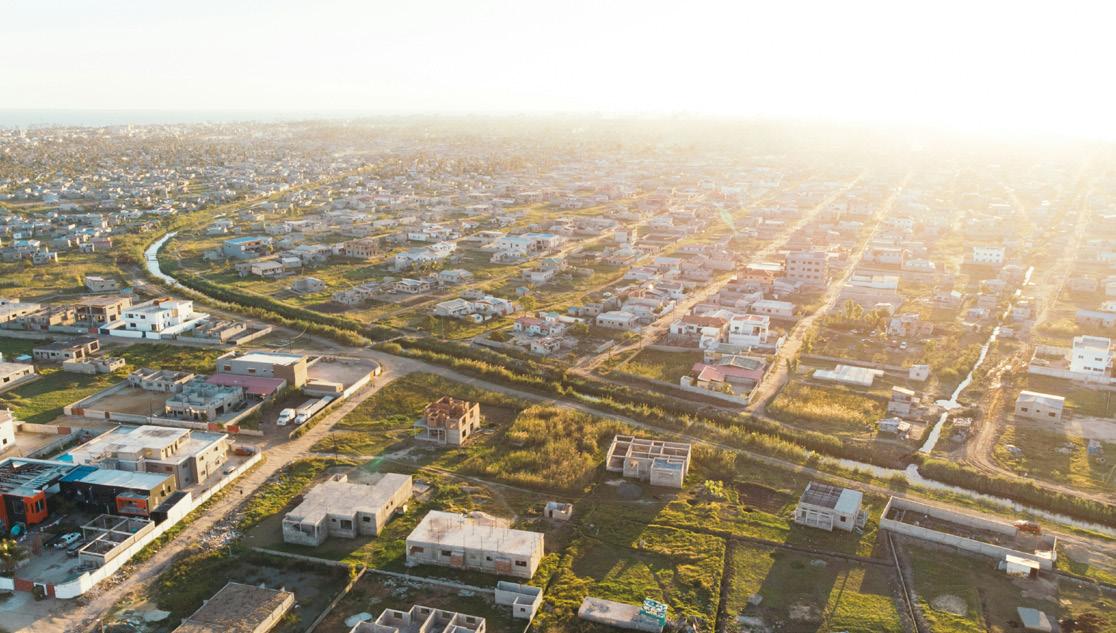
Participants will explore the incredible biodiversity of Mozambique’s coastal waters, from vibrant coral reefs to mangrove forests and seagrass beds. Through hands-on fieldwork, interactive discussions, and visits to marine protected areas, students will better comprehend the importance of preserving these vital ecosystems and consider the challenges posed by overfishing, pollution, and climate change. They will learn about innovative conservation strategies, including the employment of marine protected areas, community-based initiatives, and sustainable fishing practices. By engaging with marine conservation issues, participants will develop a deeper understanding of the interconnectedness of humans with the ocean and consider their own roles in marine conservation and environmental stewardship.
Participants will engage with Mozambique’s socio-economic challenges, including poverty, healthcare disparities, education access, and infrastructure development. Through fieldwork, seminars, and interactions with local organizations and communities, students will gain insight into the complex dynamics of humanitarian assistance and sustainable development efforts in Mozambique. They will examine the role of international aid organizations, government policies, and grassroots initiatives in addressing pressing social and economic issues. The importance of community involvement and capacity-building for long-term development success will also be explored.
Mozambique has a rich history that combines indigenous traditions with colonial influences. The country, located on the beautiful eastern coast of Africa, has encountered various challenges such as poverty, political instability, and occasional natural disasters.
Despite these difficulties, Mozambique is making progress in economic development and infrastructure enhancement, particularly focusing on the agricultural, tourism, and energy sectors. The cultural landscape of Mozambique reflects a mix of African, Portuguese, and Arabic traditions, evident in its music, dance, cuisine, and festivals.
The name “Namib” means “place of no people,” reflecting the harsh and barren conditions of the Namib Desert. Much of the country is covered by the Namib and Kalahari deserts, which feature spectacular dunes, vast gravel plains, and mountains. Despite its barren appearance in most places, Namibia is home to a diverse array of wildlife. After many decades of German colonial rule and control under the South African Apartheid regime, Namibia won its independence in 1990. Several indigenous tribes including the San, Damara, Nama, Herero, Himba, and Ovambo occupy the land. A small percentage of the population is of European (predominantly German) origin, and there is also a significant number of South Africans living in the country. Namibia relies heavily on mining activities and tourism, with visitors coming to experience the vast desert landscapes and exceptional wildlife.
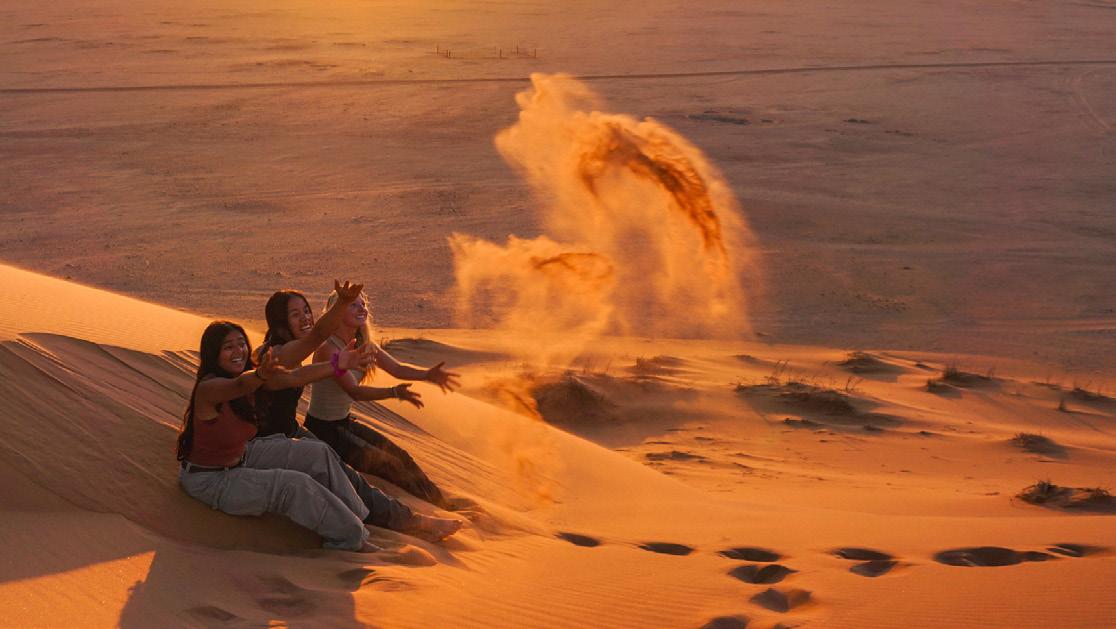
This program focuses on the intersection of education and community development, seeking to empower local communities through sustainable initiatives. Participants will engage in hands-on projects aimed at improving access to quality education, fostering literacy, and supporting community-led development efforts. Through collaborative partnerships with local schools, NGOs, and grassroots organizations, students will gain insight into the challenges and opportunities for educational advancement in Namibia. They will work alongside community members to implement educational programs, mentor students, and contribute to capacity-building initiatives that promote lifelong learning and skill development. By actively participating in community-driven projects, participants will cultivate empathy, cross-cultural understanding, and a commitment to global citizenship.
This program will examine the critical intersections of agriculture and food security within the context of Namibia’s unique environmental and socio-economic landscape. Participants will engage in hands-on learning experiences, visiting farms, agricultural research centers, and rural communities to engage with Namibia’s agricultural practices, challenges, and innovations.
Students will be introduced to sustainable farming methods suited to arid environments, such as conservation agriculture and permaculture, and learn about efforts to enhance crop resilience and improve water management in the face of climate change. Additionally, students will analyze the complexities of food security in Namibia, considering issues of access, affordability, and nutritional diversity, as well as initiatives aimed at addressing food insecurity and promoting sustainable food networks.
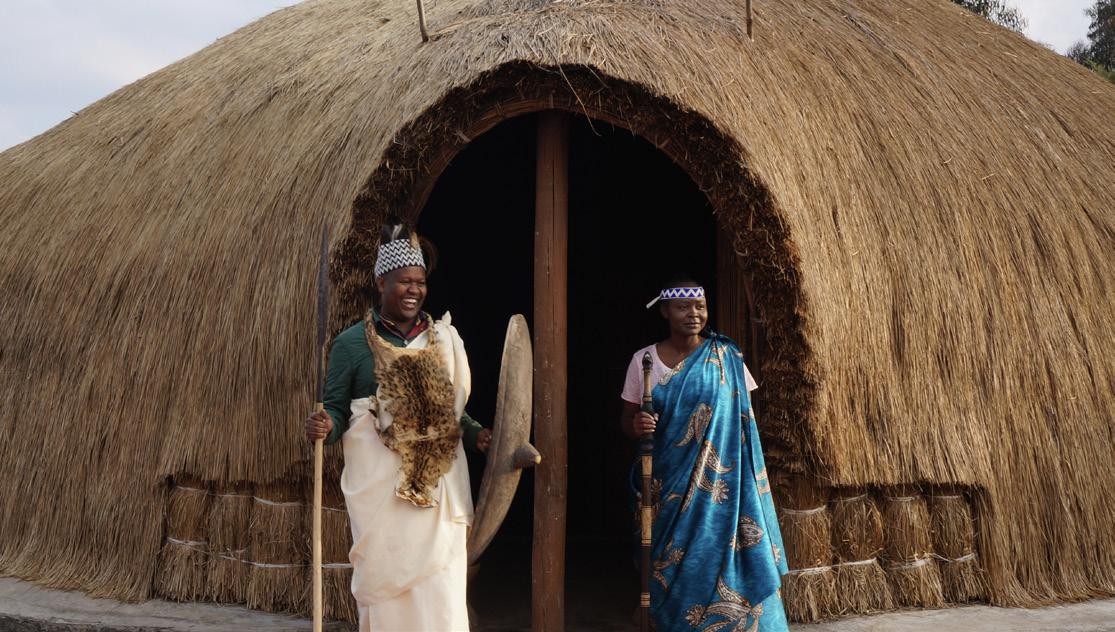
Students will explore the dynamics of civil society and social cohesion in Rwanda, with a focus on women’s social participation and leadership. The program will explore the unique development strategy Rwanda adopted in the aftermath of the 1994 genocide, analyzing the approaches taken to rebuild and strengthen communities. Through lectures by Rwandan scholars, students will gain insight into the peace and reconstruction process, which will be further enriched by site visits to development projects and women-led non-governmental organizations (NGOs). By the end of the program, participants will have developed a deeper understanding of the crucial role women’s leadership plays in civil society, particularly in fostering resilient families and communities.
Using pre-colonial and colonial history to frame the program, students will track key events in the country’s past, including those leading up to the genocide against the Tutsi. Through visits to genocide memorial sites and engagements with local community members and organizations, students will engage with the lasting trauma of the genocide while reflecting on Rwanda’s journey toward justice, forgiveness, healing, and restoration. Additionally, they will participate in service learning projects to critically analyze both historical and contemporary Rwanda. Interactions with local professionals, students, and community members will promote relationship building, transnational networking through cultural exchange, and active two-way learning, ensuring a meaningful and immersive learning experience.
The region that is now Rwanda was once divided into small kingdoms, but eventually, one powerful kingdom emerged to consolidate control over the area. Later, the region was colonized by Germany and then by Belgium. This colonization led to tensions and divisions between the major ethnic groups in Rwanda. These tensions reached a boiling point, resulting in the 1994 genocide against the Tutsi population, and the collapse of the country. However, Rwanda has managed to rebuild itself and is now considered one of the fastestgrowing economies in Africa. Despite this, a significant portion of the population still lives in poverty. The government is committed to growth.
As its name suggests, South Africa is situated on the southernmost tip of Africa. The country is known for its long struggle against Apartheid, which ended in 1994. Its history is complex, including interactions between indigenous societies and diverse migrations.
Like many African countries, South Africa is home to various people groups, cultures, and religious beliefs, earning it the nickname “Rainbow Nation”. Geographically rich and varied, it encompasses eight different biomes and a wide range of plant, mammal, and bird species.
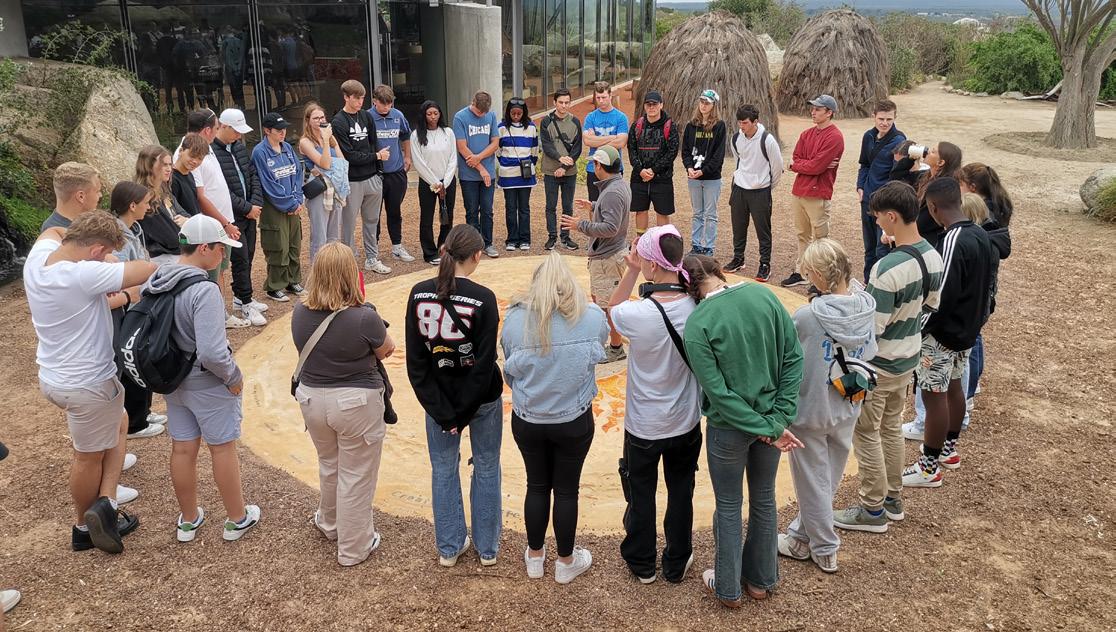
Using South Africa’s history of systemic segregation as a point of departure, this program provides students with the space to critically consider ways to bridge cultural divides and build more inclusive societies. Designed as a capstone experience, it enables students to demonstrate the skills acquired throughout their studies in an international context.
The program emphasizes transnational peer-to-peer engagement, providing opportunities for students to collaborate with South African counterparts and refine their cross-cultural communication skills.
By exploring themes such as access, marginalization, privilege, connection, expression, resilience, change, accountability, and sustainability, students are encouraged to develop a sense of agency in addressing social inequalities within their own communities and advocate for equitable societies that benefit all members.
Participants will study veterinary technology and wildlife biology, focusing on the care of wild animals and rare species within the Greater Kruger National Park. Combining wildlife medicine lectures with hands-on experience, students will gain practical exposure to veterinary technology, wildlife conservation, and environmental stewardship. In addition to scientific learning, students will foster intercultural learning and develop global perspectives as they meet with local community members to discuss perceptions of environmental change, health issues, and the role of conservation in their daily lives.
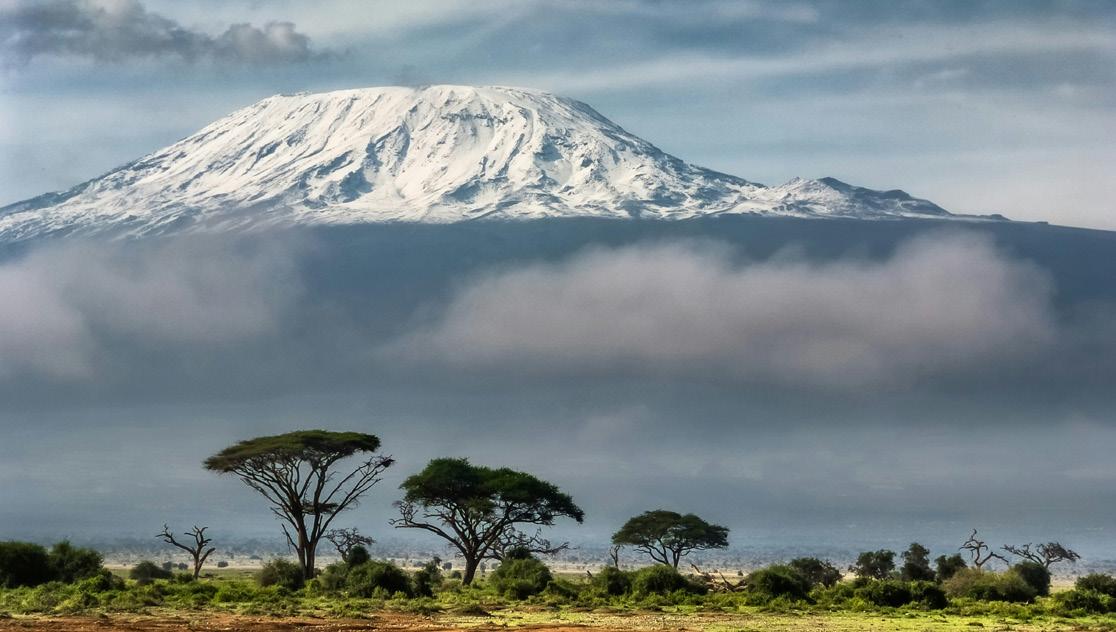
This program introduces nursing and allied health students to Tanzania’s healthcare system, providing opportunities to observe healthcare practices and actively participate in servicelearning initiatives. By engaging with local nursing and allied healthcare professionals, students will gain valuable insights into career paths and professional trajectories within the Tanzanian healthcare sector. Additionally, participants will take part in immersive cultural experiences, fostering growth in all five of EDU Africa’s transformative learning areas.
This program showcases ongoing conservation efforts aimed at protecting the Serengeti’s rich biodiversity, which serves as the backdrop for the Great Migration and is home to a diverse array of wildlife species. Through field research, lectures from local conservation experts, and visits to conservation areas, students will learn about the complex ecological processes, humanwildlife interactions, and conservation strategies employed to safeguard the region’s delicate balance. Participants will analyze the challenges of habitat loss, poaching, and climate change, while also examining innovative conservation initiatives and community-based approaches that promote sustainable coexistence between humans and wildlife.
The United Republic of Tanzania was formed in 1964 by the merger of Tanganyika on the African mainland and the island of Zanzibar when they gained independence from German and British colonial rule. Before that, mainland Tanzania was home to nomadic hunter-gatherers, settled farmers, cattle herders, migrant Bantu-speaking people, and Asian and Arabic-speaking traders. Today, Tanzania’s population consists of various African people groups, primarily of Bantu descent, as well as Asian and European minority groups, reflecting its rich cultural diversity. The country is also home to natural wonders such as Mount Kilimanjaro, the world’s highest free-standing mountain peak, and the Serengeti plains.
Togo is an intriguing destination for historical studies due to its combination of indigenous customs and colonial legacies. The country’s beautiful landscapes and lively markets offer an excellent setting for environmental and economic studies.
As a nation facing developmental challenges, Togo is a dynamic classroom for those interested in development economics and social progress. Observing the impact of international aid and sustainable practices firsthand can be an invaluable learning opportunity for students.
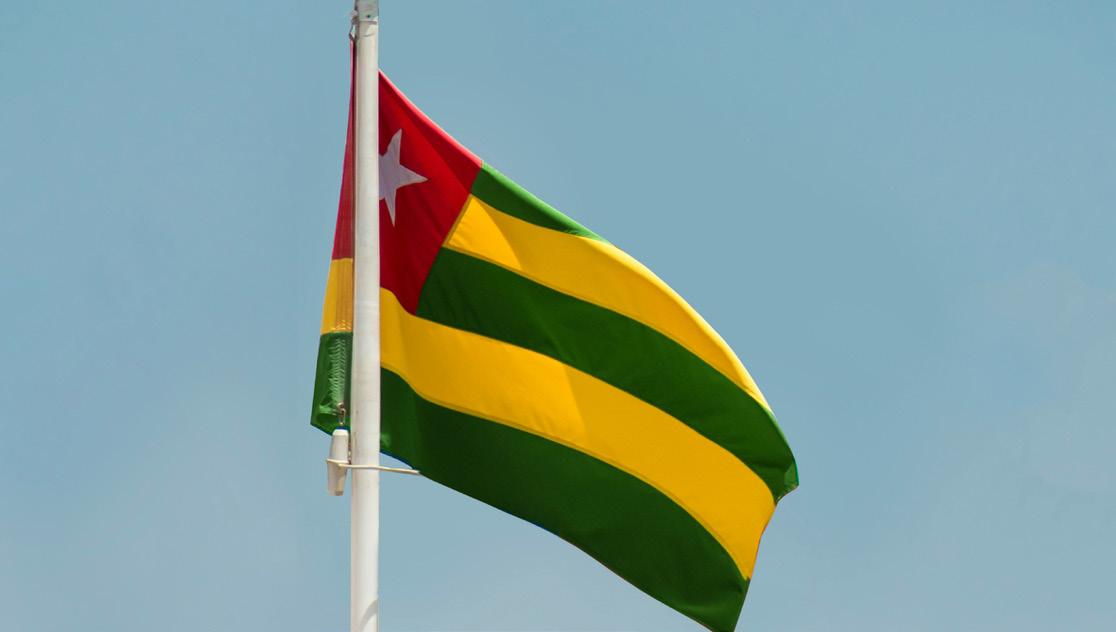
This program provides a comprehensive assessment of Togo’s dynamic economic landscape, focusing on key sectors such as agriculture, tourism, and business development. Through interactive seminars, field visits to local enterprises, and engagements with entrepreneurs and business leaders, students will observe the challenges and opportunities shaping economic growth and innovation in Togo. They will explore the role of entrepreneurship in driving sustainable development, job creation, and economic resilience. By collaborating with local stakeholders, conducting market research, and developing business plans, participants will engage in critical discussions about Togo’s economic future, gaining valuable skills and insights with global relevance.
Togo’s colonial history under French rule has left a lasting impact on its socioeconomic, political, and cultural identity. This program examines the complexities of colonial legacies, encouraging students to explore how colonization has influenced language, education, governance, and cultural practices in contemporary Togolese society. Through visits to historical sites and museums, and discussions with local experts, participants will analyze the dynamics of colonization, resistance movements, and struggles for independence. Moreover, students will engage in critical reflections on post-colonial challenges, identity formation, and the quest for national unity and development.
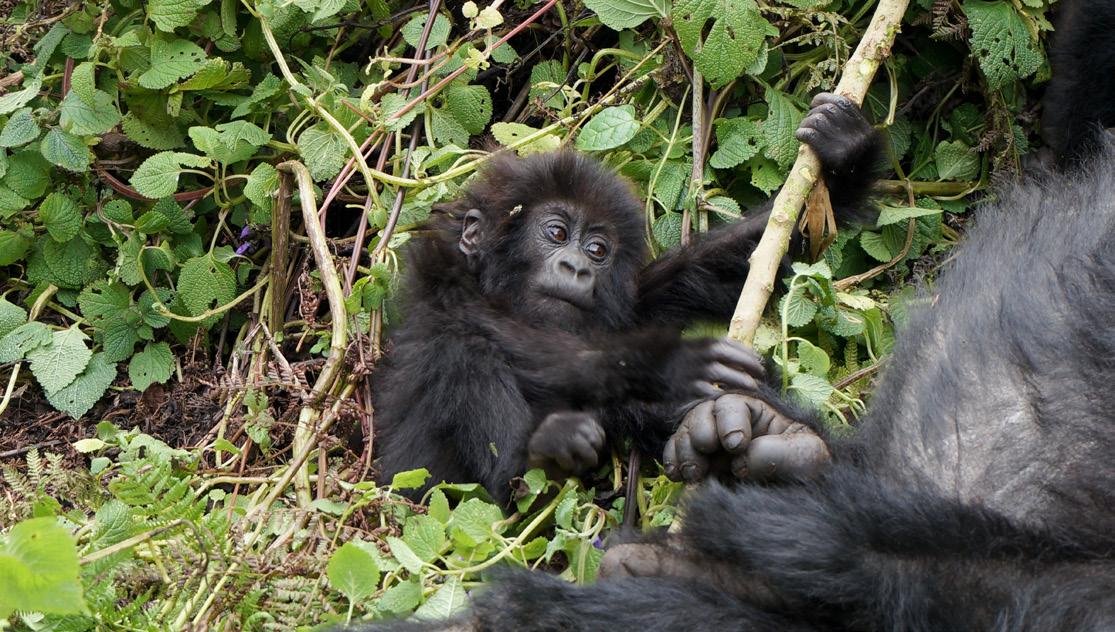
This program shows participants the rich tapestry of culture and heritage that defines the vibrant nation of Uganda. Through interactive workshops, cultural performances, and visits to historical sites and museums, students will learn about the country’s ancient kingdoms, colonial legacies, and contemporary expressions of cultural identity. Additionally, they will explore the role of music, dance, art, and storytelling in preserving and transmitting Uganda’s cultural heritage from generation to generation.
This intricate relationship between conservation, the environment, and wildlife will be demonstrated through this program. Through hands-on fieldwork, interactive seminars, and visits to conservation centers students will gain a comprehensive understanding of the challenges and opportunities involved in preserving Uganda’s natural heritage. They will learn about the importance of biodiversity, sustainable development, and community-based conservation initiatives in safeguarding the country’s rich environmental resources and iconic wildlife species, including mountain gorillas, chimpanzees, and African elephants. By fostering a deeper understanding of conservation principles and environmental stewardship, participants will be empowered to contribute positively to global efforts to protect our planet’s precious ecosystems and wildlife.
Not much is known about the detailed history of early settlement in the landlocked country of Uganda. However, it was mostly populated via two waves of migration, first by Bantu-speaking and then by Nilotic-speaking peoples.
Uganda comprises the formerly separate kingdoms of the Bunyoro, Buganda, Busoga, Ankole, and Toro. The country has a plethora of possible educationally enriching programs to offer.
Zambia gets its name from the Zambezi River which flows through it and makes up part of its southern border with Zimbabwe. Zambia’s population is largely concentrated in developed areas where mining and manufacturing occur. Most of the country comprises conservation projects, national parks, and game management areas that are untamed and pristine. Tourism is a big contributor to the country’s economy, while much of Zambia’s population inhabits rural areas and relies on subsistence farming.
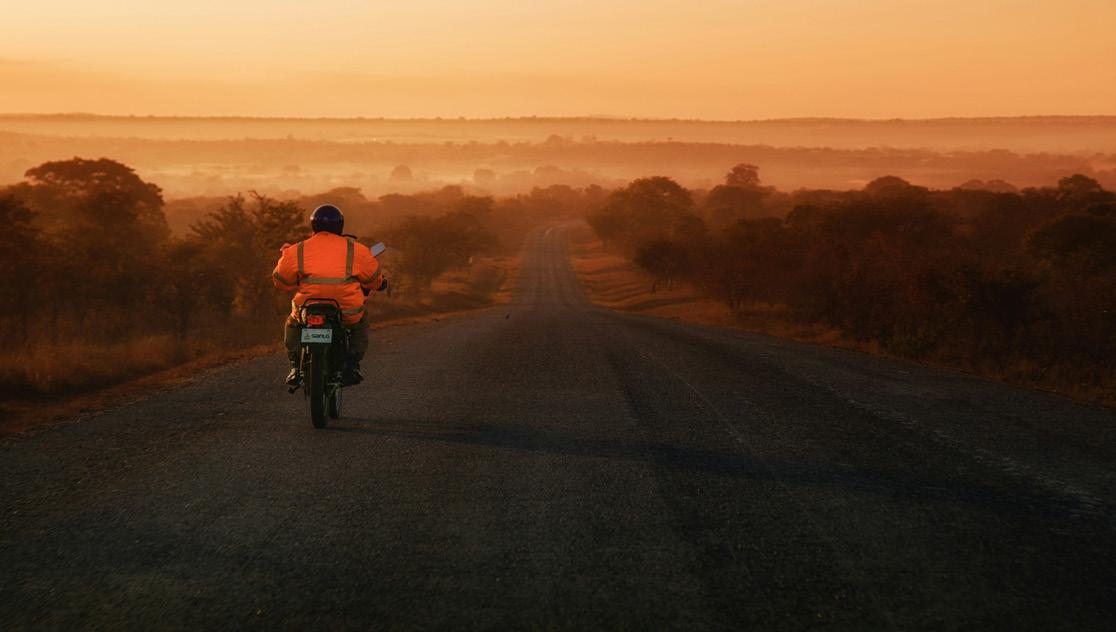
This program involves deep involvement with the local community and comprehensive community development, focusing on aspects of culture, worldview, communal living, community health, education, and sustainable agriculture. Participants will take part in home visits, guided discussions, and interaction with community health workers. Additional activities including excursions to the royal village, engagement with village leaders, involvement in school activities, and participation in strategic initiatives and projects will serve as means to facilitate learning.
Program participants will be exposed to the complex dynamics of Zambia’s copper mining sector. They will be introduced to the geological formations and processes that shaped Zambia’s significant copper reserves, establishing the country as one of the world’s top copper producers. Through field visits to operational mines and interactions with local industry experts, students will gain knowledge of the extraction methods, environmental impacts, and socio-economic implications of copper mining in Zambia. They will also examine the historical context and technological advancements that influenced the development of the mining industry, as well as the challenges and opportunities for sustainable resource management in the region.
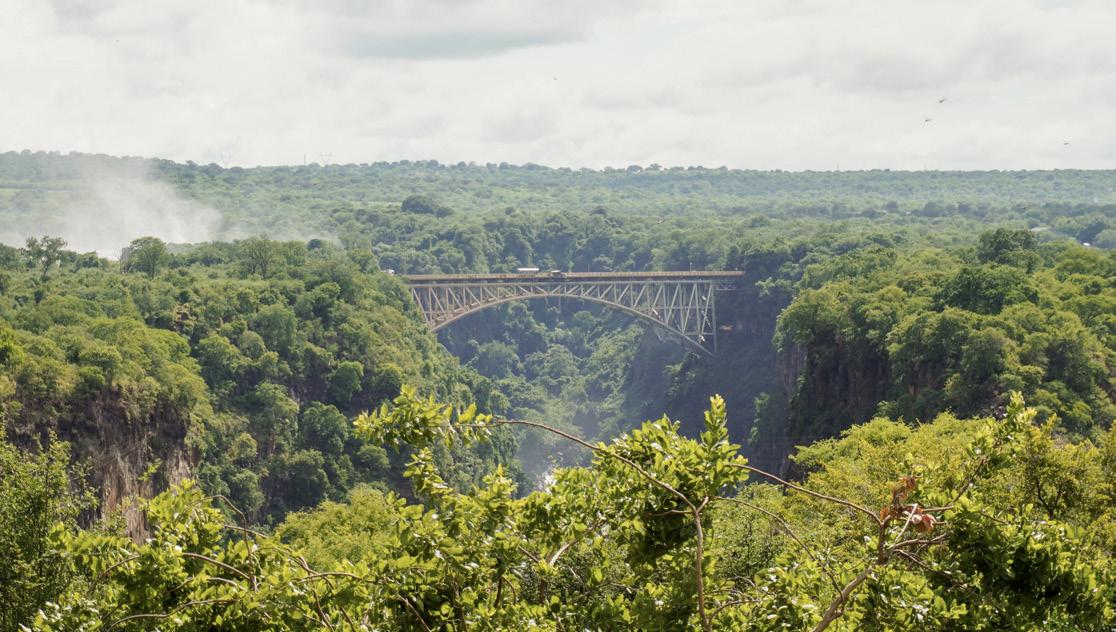
From observing large-scale commercial farming in the city of Harare to small-scale subsistence crop farming in a remote village, students will be encouraged to explore the importance of sustainable agriculture and what it means to the livelihood, health, economy, and natural environments of various communities. The program will also highlight the importance of indigenous plants in communal health and wellness, focusing on their use in traditional medicine and as a natural source of nutrition. This program will further explore the links between the conservation of natural resources and the development of agricultural and healthcare practices.
Primary wildlife management and conservation initiatives in three areas of Zimbabwe - Antelope Park (Gweru), Hwange National Park, and Victoria Falls - will form the core of this program. Students will meet and work alongside trained field guides and rangers, conservationists, veterinarians, wildlife researchers, and local community members to understand the complexities of wildlife management. The focus will be on community conservation and veterinary science. Motivating students to understand the issues around human-wildlife conflict will help them to consider holistic approaches to wildlife care and conservation. This approach will promote coexistence between humans and nature.
Zimbabwe is a landlocked country that was once home to a prolific and prosperous medieval kingdom in sub-Saharan Africa. It was colonized by the British in the late 1800s and gained its independence in 1980. Its name is loosely translated as ‘house of rock/stone’ and is an anglicized version of the Shona language descriptions, dzimba dzemabwe meaning ‘great stone houses’ or dzimba woye meaning ‘esteemed houses’. Ruins of such stone structures can be seen today at the Great Zimbabwe National Monument which is a UNESCO World Heritage site. The country has endured both socio-economic and environmental challenges. However, despite these hardships, Zimbabweans have shown immense innovation and resilience.
Professional Development programs offer faculty members an opportunity to enhance their intercultural skills and prepare to lead international education programs. Through immersive cultural experiences, critical reflection sessions, and exploration of historical and social justice issues, participants will develop a deeper understanding of their chosen region’s rich heritage and contemporary challenges. This will better equip them to design and lead educational programs in that area. The proposed learning outcomes for Professional Development programs encompass the following areas:
Participants will gain comprehensive knowledge of international education opportunities within their chosen region, including logistics, risk management, curriculum design, and student mental health considerations. This expertise will empower them to effectively lead and manage transformative international education programs for their students.
Through immersive experiences and critical reflection sessions, participants will deepen their understanding of the country’s diverse cultures, complex history, and contemporary social landscape. This enhanced cultural sensitivity will enable them to design and lead impactful programs that foster meaningful cross-cultural engagement and critical thinking in their students.
By exploring historical sites, engaging with local communities, and examining innovative educational practices, participants gain valuable insights and resources to enhance their teaching methods and curriculum design. This program aims to spark creativity and equip faculty members with the tools to integrate global learning experiences into their courses, promoting global citizenship among their students.
EDU Africa offers site visits and scouting opportunities for faculty members interested in developing and leading educational programs in Africa. These experiences provide faculty with the opportunity to experience the program firsthand before bringing students.
Participating in these scouting opportunities and site visits enable faculty members to expand their knowledge, critically evaluate international education options, and gain confidence in leading transformative educational programs in Africa.
We invite you to engage with Online Global Learning (OGL), where international borders are challenged and collaboration thrives as students connect from across the world in a dynamic online environment. Our approach to virtual exchange is deeply rooted in transformative learning theory, which emphasizes critical reflection, relationship building, and perspective change(s) to encourage learning for impact.
Unlike traditional COIL programs, each OGL program is customized and guided by specific learning outcomes. These programs may include a broad range of curricular or co-curricular global learning experiences that happen partially or completely online. Think live virtual classrooms, interactive peerto-peer dialogues with Africa-based student partners, conversations with guest experts from across the continent, collaborative projects, guided reflections, and more.
By designing these programs with a base in Africa, we aim to foster a world of collaborative experiential learning where students actively engage with knowledge-sharing, develop intercultural understanding, and exchange diverse perspectives. Online Global Learning enables students and faculty to develop digital literacy, collaboration, and global competence skills, regardless of their location.
Online Global Learning involves:
● Sustained discussion, collaboration, and exchange
● Exploration and active participation
● Structured facilitation
● Project-based learning, service learning and/or community engagement (depending on the nature and length of the program)
● Reflection
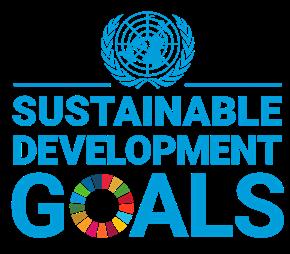
As an organization committed to transforming lives in Africa, we at EDU Africa ensure that our programs integrate the United Nations’ 17 Sustainable Development Goals (SDGs) in various ways to positively impact both the communities we serve and the students we host.
EDU Africa prioritizes community partner engagement and building relationships with local organizations to benefit the communities in which we work. We are committed to ethical participant engagements, guided by our partners’ needs and requests. Additionally, we collect feedback to ensure that our engagements meet ethical standards and provide tangible benefits to our partners.
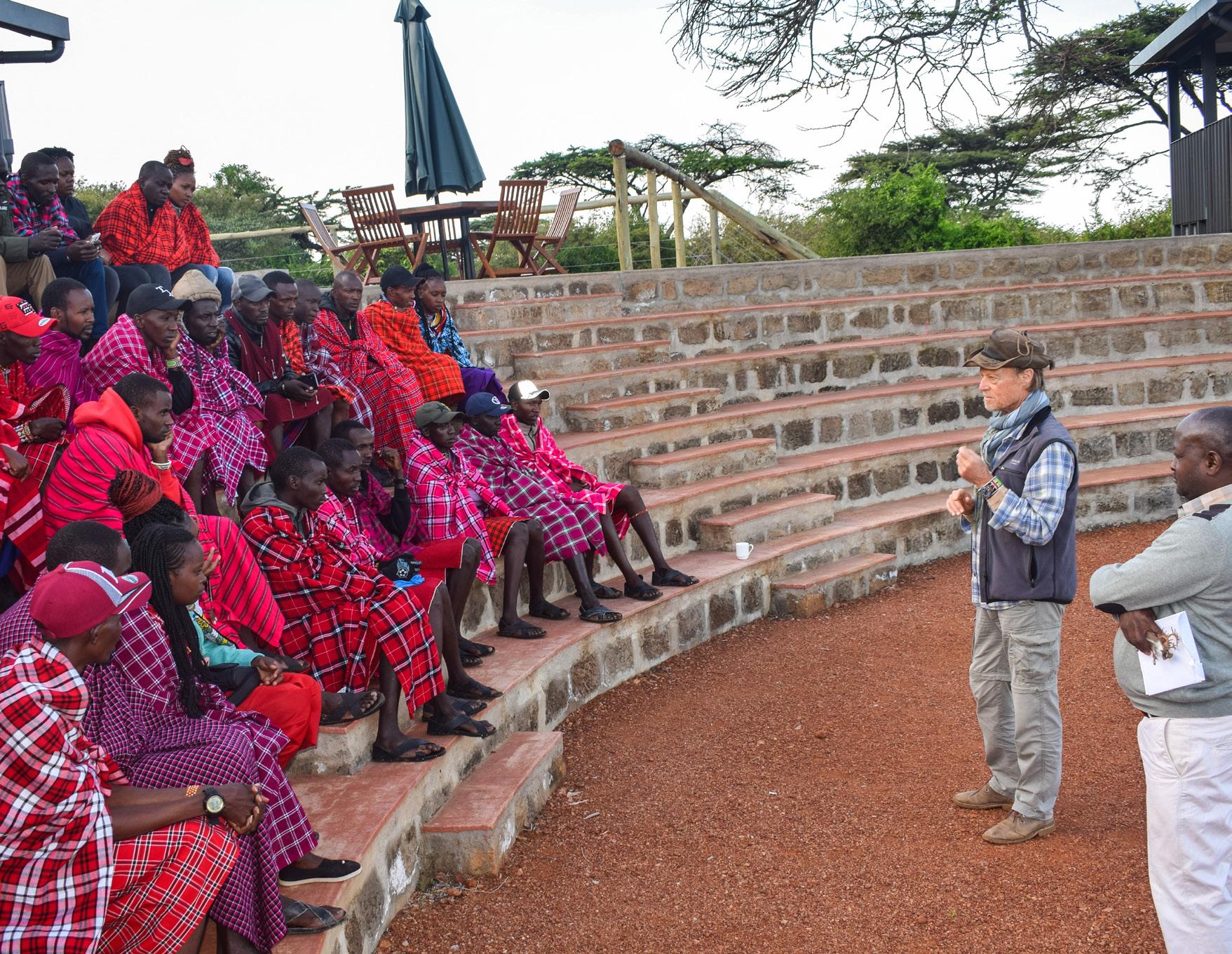
The Maasai Mara is a vibrant ecosystem renowned for its breathtaking landscapes, rich biodiversity, and deep-rooted Maasai culture. Situated in southwestern Kenya, it spans over 1,500 square kilometers of savanna, grassland, and riverine forests. The region is renowned for its annual Great Migration, where thousands of wildebeest, zebras, and other herbivores traverse the landscape, attracting a plethora of predators and creating one of nature’s most dramatic spectacles.
The Wildlife Tourism College (WTC) is a leading educational institution focused on conservation and tourism. It is situated in the Pardamat Conservation Area in Maasai Mara. The college offers top-quality one-year certificate and two-year diploma courses for local students, as well as interactive and cross-cultural programs for international students. Additionally, it serves as a research center.
WTC established a key partnership with EDU Africa. This collaboration is rooted in the shared vision of promoting sustainable tourism, cultural exchange, and educational enrichment. It enables students from around the world to immerse themselves in the distinctive environment of the Maasai Mara, where they can learn about wildlife conservation and responsible tourism practices. It also offers valuable opportunities for cultural exchange and promotes an enhanced comprehension of the intricate relationship between wildlife, local communities, and tourism.
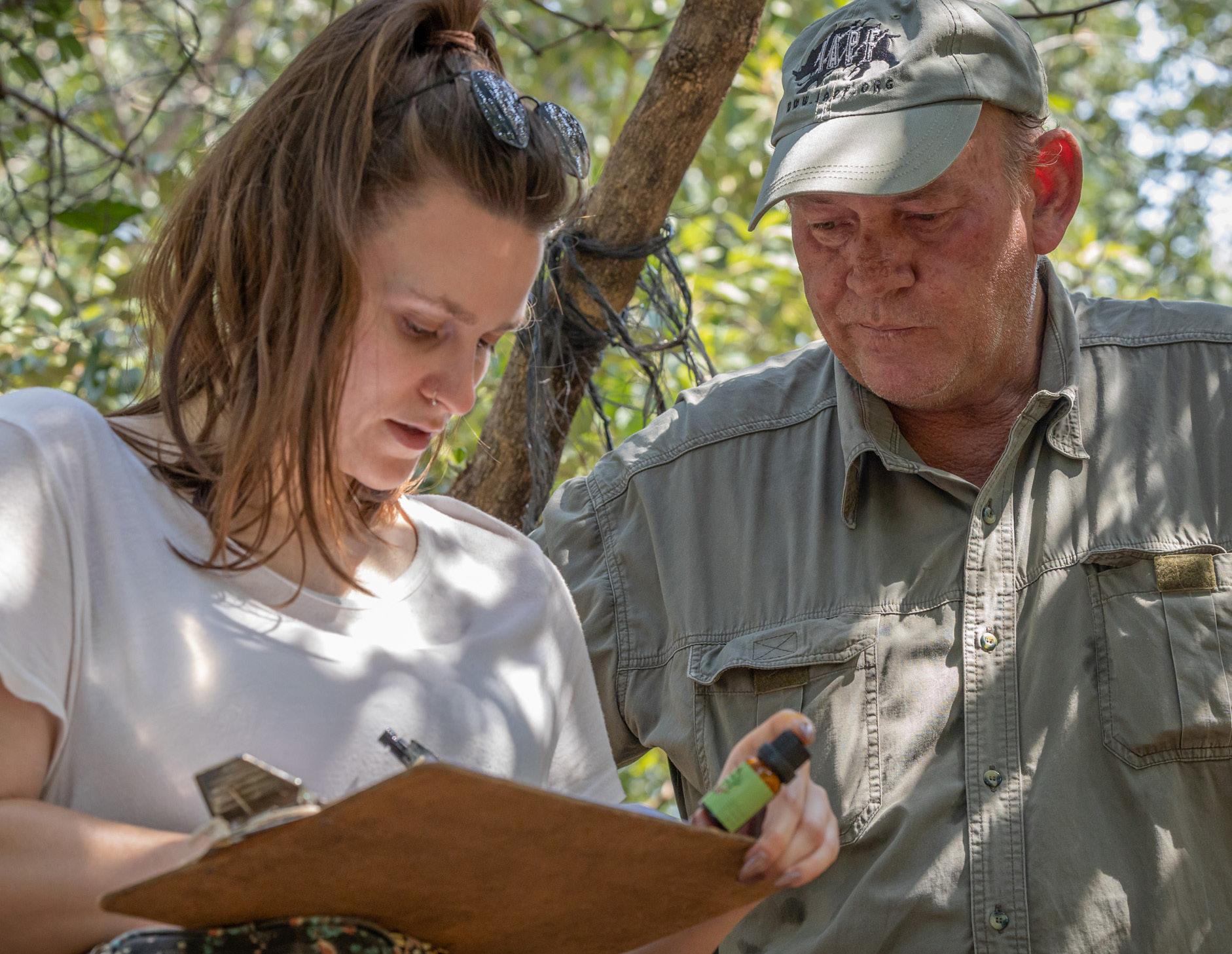
Victoria Falls, situated at the border of Zambia and Zimbabwe, is a renowned natural wonder and is considered the largest curtain of falling water in the world. As a UNESCO World Heritage Site, Victoria Falls attracts not only tourists seeking adventure and natural beauty but also those who wish to contribute to the local community and environment through meaningful service. EDU Africa’s programs in Victoria Falls are designed to harness this setting to make a positive impact through partnerships with local organizations.
In 2023, the Victoria Falls Wild Hub (VFWH) was established to take over the responsibility of leasing and managing the 4,000-acre Fuller Forest as a for-profit, purpose-driven venture. As a key buffer area between National Parks and local communities, the hub exists to facilitate efficient conservation efforts for the land, wildlife, and people in and around Fuller Forest. VFWH also inherited several animals that were rescued for rehabilitation purposes including lions, hyenas, ostriches, a duiker, a baboon, a monkey, and a crowned eagle. It only takes in and cares for animals that are considered to be in genuine need of rescue, rehabilitation, and where possible, released into the wild.
As an EDU Africa Learning Hub, VFWH welcomes students and volunteers from around the world to participate in its projects. This educational opportunity allows participants to learn about the intricate balance between wildlife and human activity.
As a team, we are passionate about people, education, and our environment. One particular project that is very close to our hearts is The Center for Ecosystem Restoration – Kenya (CER-K).
CER-K was born out of Friends of Brackenhurst Forest (FBF), a community-based organization formed in 2019 to improve the quality and accessibility of the Brackenhurst Indigenous Forest. The goal of FBF was to establish the forest as a center for education and research and to showcase the potential for indigenous ecological restoration, inspiring individuals and organizations to actively engage in ecological restoration.
With the founding of CER-K, the organization has been able to expand its vision beyond just the forest and Brackenhurst to include ecological restoration throughout Kenya. CER-K’s purpose is to support the process of halting and reversing degradation, resulting in improved ecosystem services and recovered biodiversity across the country. They currently operate from three distinct hubs: the Highland Hub, the Savanna Hub, and the Coastal Hub. CER-K is in the process of trialing different restoration-focused interventions and monitoring their impact on biodiversity, soil, water, and vegetation.
CER-K has secured a SeedBank that enables them to store up to five million seeds. This SeedBank addresses Kenya’s lack of diverse native plant material and provides an opportunity for CER-K to mentor restoration projects across the country while supplying them with the necessary plant materials to deliver high-quality restoration efforts.
At EDU Africa, we believe that inspiring participants to engage in positive social and environmental activities while on a program enhances their potential to become change agents in their spheres of influence and the world at large. When visiting the Brackenhurst campus, participants will have the opportunity to learn about, appreciate, and engage in projects related to forest and ecosystem restoration in Kenya.
Furthermore, a donation is made towards the ecosystem restoration projects at CER-K on behalf of each participant in our East African programs. Through their donations, participants play an integral part in reversing ecosystem degradation on the African continent and ensuring that communities will enjoy the benefits of natural indigenous ecosystems for generations to come. By continuously educating ourselves and others, we can inspire action and continue to transform lives both locally and globally.
